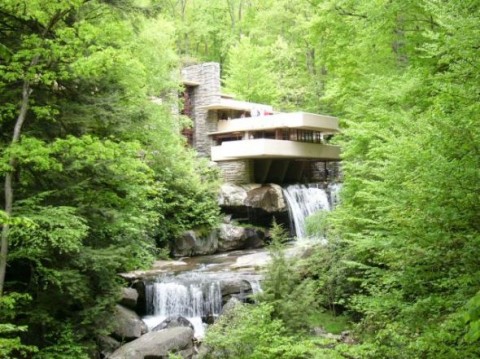"Forward With," Not "Back To"
March 1, 2012 Leave a comment
Last weekend, while on school vacation with my family, my wife Emily and I went to hear Richard Louv speak at McKee Gardens in Vero Beach, Florida. If you don’t know him, Louv wrote the books The Last Child in the Woods and The Nature Principle and is a big advocate for getting kids and adults outdoors to overcome what we calls “nature deficit disorder.” I have heard him speak in the past, and very much appreciate his work. That said, I was a bit troubled by the public comment session and conversation after his talk. People in attendance were bemoaning the loss of access to nature and wondering how to regain it. They talked about kids suffering for not having “natural play spaces” that might boost their intelligence and creativity. There was discussion about overcoming ADD/ADHD, fighting the depression that comes from staring at screens and spending days in windowless schools and other buildings, and enlivening curricula. All of this is certainly worthy conversation, and at no point was there any comment about climate change, to me the great big carbon-stuffed elephant in the room.
So I finally asked how we might connect the dots between the enthusiastic movement that has grown up around the notion of “getting kids back into the woods,” and the need for a post-utilitarian/anthropocentric view of the world that gets us beyond holding ourselves apart from our “environment” to healing the separation that has put human survival in question. Having a playful relationship with nature is all well and good, but what about the intimacy that might yield the awareness about what we have done to the planet and ourselves as members of that biotic community? To me that is a vital step to getting beyond the notion that we can continue to use the planet for our own self-centered purposes or that we will ever restore the Earth to what it was, and to step into a more humble, informed and c0-creative relationship with the living systems of which we are a part.
Louv noted in his very thoughtful response to my question that that next step for “the movement” is something he struggles with everyday, and that if you ask even the most outdoorsy people about the world they envision 100 years from now, he believes that for many it is often one out of the movie Blade Runner or Mad Max. If this is the case, he said, “We are in trouble.” As futurist Barbara Marx Hubbard has said, rifting on the old biblical phrase, “”Any society that has lost a positive image of its future will perish.” Many people it would seem, are suffering from what Glenn Albrecht calls solastalgia, and as a result are in denial or desensitizing themselves to feedback our ecosystems are providing us. What we need to do is open fully to our current reality, so that we can get a more firm grasp on where we are and how life works. From here we must develop an inviting and grounded picture of where we might go from here, though not, as Louv wisely commented, with a notion of going “back to nature,” but rather “forward with” our greater biodiverse family.
With every passing day I more deeply appreciate the underlying cosmological and ontological challenge of understanding the world and ourselves as complex living systems composed of other complex living systems. It is that perspective, I believe, that pulls us out of our despair and into our next phase of reverence and evolution as a species – the work not of restoration but of regeneration.